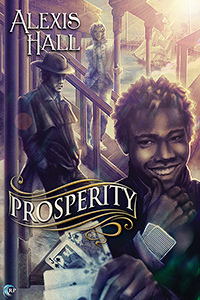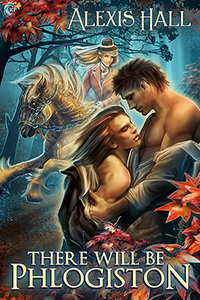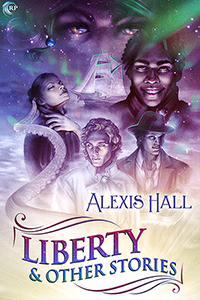We’re happy to welcome Riptide editorial director Sarah Frantz Lyons to Wonkomance today to talk about “queered” queer romance. Take it away, Sarah!
———
In my former life as an academic, I was a narratologist. I studied narrative structure, the whys and wherefores of a story’s scaffolding. Why was it put together that way? Why choose that narrator? What were the meanings and consequences of that particular narrative framing? What does it mean for representation of gender and sexuality and class and race and power that a story was, literally, constructed in that particular way?
This is something you can do on a book level (What is with the layers and layers and layers of narrative framing in Jane Eyre?) or on a scene level (Why did Jane Austen’s heroes never say “I love you” in direct dialogue to their heroines during successful proposal scenes? I answer that question in my article in this anthology, but please please please ignore that cover, OMG that cover makes me want to die.)
And as an editor, I use my training as a narratologist more now than I ever did teaching two sections of freshman composition a semester. Now instead of figuring out why a story is told the way it is, I get to figure out how it could be told better, more effectively. I not only get to take a story apart; I get to help put it back together again, in a different, stronger configuration. I love my job. I particularly love my job when I get to work on the kind of books I could have written academic papers about.
 Such are Alexis Hall’s Prosperity universe stories. (Disclaimer: I contracted these stories for Riptide. I edited these stories. I adore these stories to tiny bits and pieces.)
Such are Alexis Hall’s Prosperity universe stories. (Disclaimer: I contracted these stories for Riptide. I edited these stories. I adore these stories to tiny bits and pieces.)
Currently, these stories, in publication order, are:
- Prosperity (October 2014)
- There Will Be Phlogiston (December 2014 and FREE!)
- Liberty & Other Stories anthology (January 2014), which includes Shackles, Squamous with a Chance of Rain, Cloudy Climes and Starless Skies, and Liberty.
Chronological order in the story universe, however, is:
- Shackles
- Squamous with a Chance of Rain
- Prosperity
- Cloudy Climes and Starless Skies
- There Will Be Phlogiston
- Liberty
Actually, it’s more accurately:
- First half of internal story told in Cloudy
- Early parts of Liberty
- Phlogiston
- Second half of internal story told in Cloudy
- Shackles
- Squamous
- Prosperity
- Framing narrative of Cloudy
- Rest of Liberty
However, reading order is closer to publication order: definitely read Prosperity before any of the Liberty anthology stories. And read Liberty itself last. But the other three Liberty stories can be read in any order. And Phlogiston stands almost entirely alone.
So on the macro-scale, the narratologist in me is bouncing in excitement. There’s an emotional order for the stories that’s utterly different from the chronological order. The framing narrative of Cloudy makes no sense without having read Prosperity, even though almost all of the actual story happens before Prosperity chronologically. But if you read Cloudy first, it’s utterly confusing. If you read it after reading Prosperity, you’ll sob with joy at the end of it. As a reader, you’ll have a completely different relationship to the main character in Phlogiston if you read Cloudy first, than if you read Phlogiston first. What does it all mean?
As a narratologist, I used to examine narrative structure and construction in order to try to understand the social construction of gender in particular. Even more specifically, I examined the way female novelists constructed their male characters—primarily the romantic leads in domestic novels—in order to examine the societal construction of ideal masculinity. But that’s not why I’m excited by the Prosperity universe, not least because Alexis Hall is, obviously, a male author. No, I’m excited by the Prosperity universe because not only are most of the characters queer in some way, but because that queerness is reflected in the narrative structure itself.
So yeah, these stories are queer romance. But they are themselves also queered queer romance. The actual structure of the story mirrors, echoes, reflects, speaks to the queer relationships and queer characters that the stories themselves tell.
How are the very narrative structures of the Prosperity stories themselves queer? Let me count the ways. :-)
Prosperity itself is narrated by Piccadilly: he’s black, he’s sexually omnivorous, he’s a guttersnipe, he’s delightful, he’s sweet and innocent and world-weary and wise and naïve. And although he doesn’t get his happy ending (in this book), as a reader I totally didn’t mind and still count this book 100% a romance. It’s Dil’s book, through and through, but I wasn’t disappointed that he didn’t get his HEA, because he narrated, beautifully, the romance of two other characters who get their HEA, one of whom is the disgraced priest Ruben (drummed out of the priesthood for preaching that God is love, you know), one of whom is Milord, a criminal mastermind. Dil is himself in love with Ruben—has sex with him, even!—and even that wasn’t enough for me to root for anyone other than Ruben and Milord. But Milord is seriously ill with dustlung—a kind of pollution-induced consumption—so even that HEA is compromised. And you don’t even care, because you just know that he’s too stubborn to die. So not only is the narrative structure itself queer—you only see things from Dil’s perspective and romance rules state that that POV character should get the HEA—the HEA the book does give is questionable and it still doesn’t matter. It’s an utterly, perfectly satisfying romance that breaks every single narrative rule it can break to tell its story, and it couldn’t be told any other way.
Shackles is queer because it’s less about the start and growth of a relationship between Ruben and Milord as it is about Ruben peeling away the layers of precisely how unredeemably evil Milord actually is. And still, as a reader, you root for Milord to escape his prison and his death-sentence, even as you come to learn exactly how much he deserves it. Everything you learn in Shackles shows precisely how much Milord doesn’t deserve his HEA, even as you know that he gets his HEA, because (presumably) you’ve read Prosperity already.
Squamous is queer because it’s told by Jane Grey as she descends into madness and heroin addiction, and yet this madwoman is the most reliable narrator you can imagine. Also, it’s an epistolary mashup of Rebecca, The Call of Cthulhu, and—I shit you not—The Sound of Music, and if that’s not queer, I just don’t want to know.
 There Will Be Phlogiston (did I mention it’s FREE?! It’s FREE! 40,000 free words of free awesomesauce and a carnivorous mechanical horse) . . . oh, look at that cover. That cover is all the queer goodness of the story. Shirtless clinches and a (carnivorous mechanical) horse freaking out in the background. Phlogiston is a story about finding oneself by giving oneself away, about finding love in all the wrong places, about everyone deserving love, about a hero who is brought to his knees, not to beg for love, but after he’s already found it. Phlogiston is about drawing the Sedgwickian triangulation of homosocial desire with a bisexual hero, so everyone is not only happy, but fulfilled, in love, and highly sexed. :-)
There Will Be Phlogiston (did I mention it’s FREE?! It’s FREE! 40,000 free words of free awesomesauce and a carnivorous mechanical horse) . . . oh, look at that cover. That cover is all the queer goodness of the story. Shirtless clinches and a (carnivorous mechanical) horse freaking out in the background. Phlogiston is a story about finding oneself by giving oneself away, about finding love in all the wrong places, about everyone deserving love, about a hero who is brought to his knees, not to beg for love, but after he’s already found it. Phlogiston is about drawing the Sedgwickian triangulation of homosocial desire with a bisexual hero, so everyone is not only happy, but fulfilled, in love, and highly sexed. :-)
And Cloudy, oh Cloudy. Cloudy is the connection between all the unconnected parts, the lynchpin of the series, even though it is, itself, the most fragmented of the stories. Cloudy is the story of Byron Kae, a genderqueer aethermancer who is mystically connected to the tall ship Shadowless that flies the kraken-filled skies. The narrative frame (told in deep third from Byron Kae’s perspective) is that Dil asks for Byron Kae’s origin story (told in Byron Kae’s first person perspective). In telling Dil—and the reader—how they came to be an aethermancer, Byron Kae finally seduces Dil, and they both finally get their happy ending together, floating in the skies above Shadowless. The narrative structure is as queer as Byron Kae—not one thing nor the other, literally ranging all over the chronology of the Prosperity universe, not sticking to one time like all the other stories, not sticking to one perspective (going from third to first), and Dil interpolating comments during Byron Kae’s story so that past and present are always combined. Byron Kae seduces Dil with stories-that-are-reality, by narrating their own past, by sharing the intimacy of narrative. And as Dil is seduced, so is the reader. Literally. Or at least, this one is.
 And Liberty is about the political and personal toll of imperialism and the arms race, about a man so deeply in the closet he himself doesn’t realize he’s gay and literally can’t yet have a romance—literally, in fact, can’t tell his own story—but who both helps make possible and also prevents the deployment of the steampunk equivalent of the nuclear bomb. You know, no biggie. :-)
And Liberty is about the political and personal toll of imperialism and the arms race, about a man so deeply in the closet he himself doesn’t realize he’s gay and literally can’t yet have a romance—literally, in fact, can’t tell his own story—but who both helps make possible and also prevents the deployment of the steampunk equivalent of the nuclear bomb. You know, no biggie. :-)
And Riptide itself did something that I now realize is a little bit queer. We gave each of the Liberty stories their own cover and we gave the Liberty anthology an additional cover. So each of Shackles, Squamous, Cloudy, and Liberty has two covers. Queerness for everyone! Whee!
Working on these stories made all the parts of me happy: reader, editor, academic. I hope y’all love them too. (And hey, Phlogiston is FREE!)
————
![]() Sarah Frantz Lyons is Editorial Director of Riptide Publishing, a queer romance press (ie: a press that publishes queer romance, but yes, the press itself is pretty queer!). She can invariably be found procrastinating on Twitter: @sarahfrantz
Sarah Frantz Lyons is Editorial Director of Riptide Publishing, a queer romance press (ie: a press that publishes queer romance, but yes, the press itself is pretty queer!). She can invariably be found procrastinating on Twitter: @sarahfrantz






















Sarah you have thrilled this academic with your discussion of narrative structure, and written about a web of books and stories by Alexis that I love for many reasons. One of the great frustrations in my life now, is that work such as Alexis’ is restricted in its market explicitly to reader’s of queer romance.
Well, we’re doing what we can to expand the market for queer fiction just in general. It’s bigger now than it was a few years ago. It’s gigantic considering what it was when I started reading m/m romance. So, you know, we’ll get there. :)
P.S These are the only books that I have in e format but will collect in tree book form as well….Wonderful covers!
Oh, the covers! They’re so incredible! I’m so glad you love them!
I love this! I just finished reading Prosperity, and now I’m super excited to read all the others as well. I especially can’t wait for Cloudy. I need to see Dil and Byron Kae get their happy ending!
Narratology sounds really fascinating too, I love the idea of seeing the underlying structure in books, even though I’m completely awful at it. >.< As a writer I usually just wing it and hope for the best, but I always get the sense that something's going on in my subconscious to help the story along, and I'd love to be able to recognise exactly what it is I'm doing. If I can harness that power, maybe I can become a better author. *cue evil laughter*
Ahem, anyway, thanks for the awesome post! You hardly ever see this kind of academic discussion of romance and fantasy, and it's really awesome!
Oh, Cloudy…I can barely THINK of it without crying happy tears, let alone read it. :) I hope you love it.
Narratology is awesome. It’s wonderful to be able to see structure. But then…you can write. :) So, you know, we all have our skills.
I’m hopelessly in love with this ‘verse. I, too, will be collecting the paperbacks, because the covers are as beautiful as the prose inside.
Yay! :) They’re all wonderful. I hope you continue to love them!
I love this article. Queering is not a term I use often because I think the kind of subversion it refers to can be complex and hard to pin down. I agree with you completely here though I do think the Prosperityverse queers romance in a lot of different ways and I think also speculative fiction.
I look forward to reading the rest of it.
Thank you. I had fun writing it. I know way WAY less about specfic than I do about romance. So I can’t really speak to that, but I love how Alexis is queering romance. :)
Sarah, what an absolutely fascinating piece; I love this!
Aw, thank you! :) It’s easy to talk about these books. They’re so awesome.
Thanks to this brilliant essay and our exchange on Twitter, I have now ordered all of the books in this series.
As a writer, your analysis has given me a whole new lens for thinking about my own work, as well as an extensive new field to explore. Thank you!
Yay, I’m so glad. :) That just made my day, on all counts!
Thank you so much to the Wonko crew for having me! I love hanging out here. :)